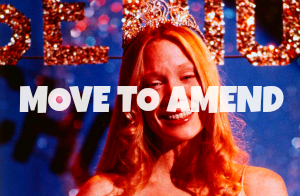Republicans want to extend the Bush tax breaks for the super-rich. They say that this is absolutely necessary, as it’s the rich who create jobs. It sounds logical enough, right? But, recent history tells us a different story.
In 2001, when Bush first pushed these tax breaks through Congress, we were told that doing so would supercharge the economy. Here, in the words of the Christian Science Monitor, is what actually happened.
…When Congress passed the tax relief act in 2001, the US Treasury had a surplus, which economists predicted would grow to $5.6 trillion 10 years down the road. Instead, the United States has an estimated deficit this year of $1.34 trillion. If the federal government extends all those tax cuts this fall and takes no other actions, America could be looking at $9 trillion or $10 trillion in accumulated red ink over the next decade…
I know it doesn’t tell the whole story, as Bush also led us into an extremely expensive war, among other things, but here are the tax rates for America’s top earners in 2000 and 2010 respectively, along with our national unemployment rate at the outset of said year.
2000: Income tax rate of 39.6% for the most wealthy Americans.
Unemployment at 4.0%2010: Income tax rate of 35.0% for the most wealthy Americans.
Unemployment at 9.7%
But, in spite of this, we have reason to believe that making these tax cuts permanent will somehow spark a flood of job creation not realized over the past decade, in the wake of the Bush tax cuts.
What we have seen during that time, however, is a growing gap between the rich and poor in this country. Here, on that subject, is a clip from the Associated Press.
…The income gap between the richest and poorest Americans grew last year to its largest margin ever, a stark divide as Democrats and Republicans spar over whether to extend Bush-era tax cuts for the wealthy.
The top-earning 20 percent of Americans – those making more than $100,000 each year – received 49.4 percent of all income generated in the U.S., compared with the 3.4 percent made by the bottom 20 percent of earners, those who fell below the poverty line, according to the new figures. That ratio of 14.5-to-1 was an increase from 13.6 in 2008 and nearly double a low of 7.69 in 1968…
Fortunately, though, a majority of Americans realize this, and want the Bush tax cuts for the wealthy to expire. You wouldn’t know it to listen to our President, though. He, it would seem, would love to extend the cuts, if only there were a way to pay for them… And, what’s worse, he may agree to extend them even though we clearly can’t.
I want to say more, and do my part to stir up the revolution, but the heat from the laptop is beginning to burn through my gut, upon which it’s precariously balancing. So, that’ll have to be it for tonight.
[Tonight’s post was brought to you by earmark accepting anti-earmark Republicans, and those Teapartying members of Congress who, although having campaigned against Obamacare, now really want their government-run healthcare.]
update: The burning, as it turns out, wasn’t coming from outside my gut. It was coming from inside. I think my body is producing excess bile.












